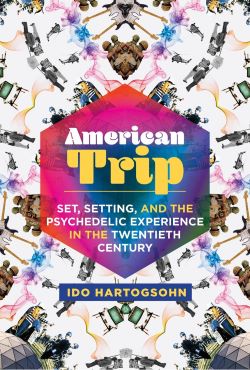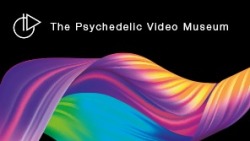Culture is not your friend: On the countercultural philosophy of psychedelic thinkers
“Culture is not your friend. Culture is for other people’s convenience and the convenience of various institutions, churches, companies, tax collection schemes, and what have you. It is not your friend. It insults you, it disempowers you, it uses and abuses you. None of us are well treated by culture” [i]. This famous passage from McKenna’s 1998 “Valley of Novelty” series of lectures epitomizes one of the most fundamental ideas of psychedelic thinking.
Psychedelic counterculture is not only countercultural in the sense of being peripheral or opposed to mainstream culture: It is countercultural in the deepest sense of the word, by rejecting the whole concept of culture, a concept which is viewed as a constricting complex of values, concepts and ideas which are imposed on the individual in the name of uniformity, thereby limiting human potential for thought and expression.
According to McKenna, the victims of culture include all those who are subjected to its dogmas, values and ideologies: From the young man going to kill and die in a war against people he never met in the name of culture, to those who limit and suppress their sexual identity and preferences in order to conform to culture’s moral dictates, as well as to those whose aesthetic and philosophical sensibilities are shaped by culture’s limiting constructs of expression and thought – in short, everybody. By embracing cultural forms such as ideologies, trends or brands, we are giving up on the precious opportunity for individual expression inherent in human existence. By defining ourselves through a predetermined concept or structure, saying for example:” I am a Marxist” or “I am an Apple fan” – one gives up his chance for self-definition. Culture, as McKenna puts it, is an intelligence test – and those who choose to embrace it fail the test.
The roots of counterculturalism
The psychedelic-countercultural idea forms a distinct current in the philosophy of many of the major psychedelic thinkers of the past 50 years such as Aldous Huxley, Timothy Leary, Robert Anton Wilson and Erik Davis. However, its roots run much deeper. Indeed, in a way it is even prevalent in the ancient role of the shaman who according to McKenna has a “wider view because he is not a part of culture”. The shaman might appear to be a member of the culture but according to McKenna his perspective “is broader, deeper, higher and wider than the culture that created him.”[ii]
This countercultural tendency of psychedelic thinking is derived directly from an essential aspect of the psychedelic experience, an experience which transplants the individual back into the body, to the naked facts of its biological existence, and exposes the common perception of reality as a cultural construct, or a “game” as Leary used to call it. The psychedelic experience is also characterized by a sense of universality and unity which undermine concepts of nation and state, and by inner journeys which send the human being into strange and fantastic terrains which make conventional models of culture, previously seen as absolute, seem limited and arbitrary.
Similar ideas to those expressed by McKenna in his “Valleyof Novely” series of lectures have already been discussed in the middle of the 20th century by psychedelic philosopher Aldous Huxley. “History is the record, among other things, of the fantastic and generally fiendish tricks played upon itself by culture-maddened humanity” asserted Huxley in his 1963 essay “Culture and the individual”.[iii]
Culture, according to Huxley is a hypnotic agent which has “given us, generation after generation, countless millions of hypnotized conformists, the predestined victims of power-hungry rulers who are themselves the victims of all that is most senseless and inhuman in their cultural tradition.”[iv]
Culturally formed consciousness is distorted by the preconceptions of culture, which Huxley likens to a net which constricts one’s field of view. “What we see through the meshes of this net is never, of course, the unknowable ‘thing in itself’ (…) What we ordinarily take in and respond to is a curious mixture of immediate experience with culturally conditioned symbol, of sense impressions with preconceived ideas about the nature of things.”[v]
Indeed, even the idea of “Cleansing the doors of perception”, so central to Huxley’s seminal Doors of Perception is interpreted in “Culture and the Individual” as related to the cleansing of perception from the imposed pre-conceived concepts of culture. “To become fully human, man, proud man, the player of fantastic tricks, must learn to get out of his own way” writes Huxley “only then will his infinite faculties and angelic apprehension get a chance of coming to the surface. In Blake’s words, we must ‘cleanse the doors of perception’; for when the doors of perception are cleansed, ‘everything appears to man as it is—infinite.’”[vi] Culture is thus seen as the very valve of perception whose constricting impact on our potential as human beings Huxley so passionately lamented.
Huxley was hopeful that psychedelics might prove useful as tools which will free man from the despotism of culture. “Always desirable, widespread training in the art of cutting holes in cultural fences is now the most urgent of necessities.” He wrote. “Can such a training be speeded up and made more effective by a judicious use of the physically harmless psychedelics now available? On the basis of personal experience and the published evidence, I believe it can.”[vii]. To those who ridiculed his involvement with the psychedelics calling it “Having Fun with Fungi” He answered with the question: “But which is better: to have fun with Fungi or to have idiocy with Ideology”?[viii]
 During the 1960s Timothy Leary, the most prominent advocate of the use of psychedelics during that period was also questioning the role of culture in the constricting our patterns of thought and imprinting our perceptions and reactions. In one of his lectures from the 1960s Leary Considers one of Konrad Lorenz’s famous imprinting experiments. Lorenz showed that newly born ducks will get imprinted and follow the first moving object they encounter after being born. He described a duck who was imprinted by a basketball upon birth, and who followed the basketball wherever it went, even trying to suck milk out of it. Leary asked his listeners to consider what kind of hallucinatory basketballs, they might be carrying in their heads – cultural basketballs that have been imprinted in them since birth.
During the 1960s Timothy Leary, the most prominent advocate of the use of psychedelics during that period was also questioning the role of culture in the constricting our patterns of thought and imprinting our perceptions and reactions. In one of his lectures from the 1960s Leary Considers one of Konrad Lorenz’s famous imprinting experiments. Lorenz showed that newly born ducks will get imprinted and follow the first moving object they encounter after being born. He described a duck who was imprinted by a basketball upon birth, and who followed the basketball wherever it went, even trying to suck milk out of it. Leary asked his listeners to consider what kind of hallucinatory basketballs, they might be carrying in their heads – cultural basketballs that have been imprinted in them since birth.
Leary asked his readers to “think for yourself and question authority”, and his most famous slogan “Turn on, tune in, drop out” could also be seen as a characteristic expression of the anti-cultural character of psychedelic thought: The turning on was to be achieved through the use of psychedelics, the tuning in was to one’s consciousness and inner world, and the dropping out was a way out of society’s games and value systems which dehumanize the individual. “Everything we accept as reality is just a social fabrication” wrote Leary[ix], inverting the accepted model of realty: Through the use of psychedelics, things which formerly appeared as real such as nations, moral values and aesthetic preferences are suddenly divulged as constructed by culture and meaningless to the individual true self, while other, inner realities which are conventionally dismissed as “hallucinated” are considered to have a higher degree of validity.
The fallacy of culture
The idea that our perception of reality is mediated by culture has its roots in the thought of Franz Boas, the father of modern anthropology, who coined the term “Kulturbrille” to refer to a set of ‘cultural glasses’ that each of us wears and which provide us with means of perceiving the world around us.
Robert Anton Wilson, who elaborated many of the ideas proposed by Leary’s in the 1960s, during the 1970s and onwards elaborated on the idea of Kulturbrille in his concept of “Reality Tunnel”. According to Wilson ideology and models of the world in general are a “reality tunnel” which shapes the way we view the world. A reality tunnel is a kind of “brainwash” and Wilson maintained that “the easiest way to be brainwashed is to be born” [x]. Culture, in his eyes, was a tool for programming the minds of human beings. Such programming is done by all cultures, and predisposes the individual to view the world through a particular reality tunnel which will shape his view of reality whether it be that of “Eskimo totemists, Moslem fundamentalists, Roman Catholics, Marxist Leninists, Nazis, Methodist Republicans, Oxford agnostics, Snake worshipers, Ku Kluxers, Mafiosos, Unitarians, IRA-ists, PLO-ists, orthodox Jews, hardshell Baptists etc. etc.”[xi]
The thing which unites the people who hold all these extremely different views of the world is their commitment to a certain ideology or worldview through which they see all things. Thus, they tend to gather any piece of evidence which will support their particular worldview and dismiss any piece of evidence which will go counter to it –creating a customized, highly particularized and view of the world to suit their own predispositions.
The common name for such a distorted culturally-bound perception of reality is “ideology”, a concept which psychedelic thinking sees as a prime example for the fallacy of culture. Psychedelic countercultural thought is deeply anti-ideological and has a deep rooted skepticism regarding all ideologies and rigid theories: political, cultural or scientific. The inherent fallacy of ideology is that it limits the infinite nature of reality into a narrow worldview which is bound to go wrong. “Belief” maintained Wilson, “is the death of intelligence”.[xii]
Psychedelic thinking, by contrast, champions the idea that every ideology or theory is incomplete by nature, since it tries to impose a finite model of the world on an infinitely complex reality. “The universe” as Terence McKenna never tired of pointing out, quoting British biologist J.B.S. Haldane “may not only be stranger than we suppose, it might be stranger than we can suppose”. Thus, the attempt to perceive its complexity may not only be futile – it may even be harmful, since it inevitably leads to fallacies. Every culture in history believed that the cultures that came before held ludicrous notions about the world, notes McKenna. Each of these cultures, he continues, congratulated itself on having reached an almost perfect knowledge of the world, convincing itself that it already figured out 95% of the picture, and that the missing 5% would soon arrive. Yet each of these cultures was wrong – an observation which seems to accurately mirror our present western culture and science as well as all its predecessors.
Wilson who invented the concept of “maybe logic”, a logic which transcends the positive and the negative by adopting a permanent state of agnosticism, was perhaps the most careful to avoid this fallacy. In his books he often made a point of not committing to any idea and to discussing any idea using his “maybe logic” – a logic which seeks to avoid the use of “be” verbs, and keep every idea and fact under a permanent question mark. His ideal was that of general agnosticism. Agnosticism not only about God but about everything: a general state of not-knowing which will free us from the narrow worldviews of common absolutist world-models which attempt to explain the world and thus distort it.
Two final questions
As I noted above, the countercultural and anti-ideological idea held by many of the psychedelic thinkers is one of the most characteristic features of psychedelic thinking. However, while it is a tremendously persuasive and eye-opening criticism of the social and cultural reality, it also leaves at least 2 questions which are in dire need of an answer.
The first one is the question of whether it is desirable or even possible to abolish culture. Culture, after all, has given us “law, science, ethics, philosophy” and made possible “all the achievements of talent and of sanctity” as Huxley felt necessary to note[xiii]. Even McKenna felt compelled to agree that we do not wish to abolish culture altogether, since some of it is valuable, such as for example “the Sistine chapel”. Both have made preliminary attempts at distinguishing those parts of culture which are positive and inspiring from those which are misguided and cancerous. A convincing and final answer about how to distinguish between those parts of culture which are worth preserving and those which should be forsaken, is however nowhere to be found.
A second implication of the counter-cultural argument which has been addressed only too rarely, is the implication of this line of thought when it is being directed towards the psychedelic culture itself, as noted by Lorenzo Hagerty, host of the psychedelic podcast show, “The Psychedelic Salon” who introduced McKenna’s talk “Culture and ideology are not your friend” saying: “I hope you will give some serious thought to his [McKenna’s] famous remark about culture being the ultimate cult. And that includes our own psychedelic culture by the way”.[xiv] Individualistic and boundless as it might be, psychedelic culture can not eschew the traps of culture altogether, and it is perfectly capable of imposing a particular and limited form on the boundlessly infinite experience of the psychedelics. A thought to be kept in mind.
[i] Terence McKenna: Culture is not your friend, 2007, http://www.youtube.com/watch?v=iYB0VW5x8fI&feature=youtube_gdata_player.
[ii] Terence Mckenna, The Archaic Revival: Speculations on Psychedelic Mushrooms, the Amazon, Virtual Reality, UFOs, Evolution, Shamanism, the Rebirth of the Goddess, and the End of History, 1st ed. (HarperCollins, 1992), 14.
[iii] “Culture and the Individual”, n.d., http://www.psychedelic-library.org/huxcultr.htm.
[iv] Ibid.
[v] Ibid.
[vi] Ibid.
[vii] Ibid.
[viii] Ibid.
[ix] Timothy Leary, Flashbacks (Tarcher, 1997), 32.
[x] Robert Anton Wilson, Prometheus Rising (New Falcon Publications, 2009), 169.
[xi] Ibid.
[xii] Robert Anton Wilson, Cosmic Trigger I: Final Secret of the Illuminati, 9th ed. (New Falcon Publications, 2008), ii.
[xiii] “Culture and the Individual”, n.d., http://www.psychedelic-library.org/huxcultr.htm.
[xiv] Psychedelic Salon. “Podcast 011 – ‘Culture and Ideology are not your friends’”, n.d., http://www.matrixmasters.net/salon/?p=26.








WoW, a very good paper! I really enjoy reading it! Thank you Ido for the inspiration.
Dear Ido, I absolutely love your essay. I mean, the content, the style and structure, the lucidity … I appreciate your effort!
Great paper, really enjoyed your elucidation of the “reality tunnels” we all deal with. Our ingrained habits and perceptions are often useful, but they can be so limiting! These tunnels present barriers between us and others, isolating us. I think perceptual barriers play a big part in the I-them mentality that leads to all forms of tribalism…”that person doesn’t see the world like I do, so s/he is different — a threat!”
Your last few sentences really grabbed me — even if the psychedelic experience is fundamentally anti-ideological and prejudice-shattering, we have still managed to develop psychedelic cultures which embrace dogma, albeit countercultural or shamanistic dogma. How absurd and how human that we would construct reality tunnels even around these reality-bending chemicals! But we know no other way.
Struck by how rigid and dogmatic some proponents of the shamanic experience can be, I also wrote a post on the theme called Sacredness Is in the Eye of the Beholder: http://www.psychedelicfrontier.com/2013/04/17/start-your-own-entheogenic-tradition/
Because we are fundamentally social beings, and this is a key aspect of being incarnated as human beings I don’t think we can avoid creating forms of shared culture – with all the drawbacks you point out. But individuals cannot exist alone. In order to think critically about culture, as you do well, you have to learn to think, which is a cultural tool and is acquired culturally. I think there is potentially an underlying thread of individualism in this post, which is a very Western (especially North American) culturally based belief.
Oh, good point there. You just added a little extra 🙂 Thank you
enjoyed this paper. Especially the last two questions.
:Look into System Justification Theory & Meaning Maintenance Model!
I feel that becoming “psychedelic” isn’t about renouncing culture and heading for the woods. All of these thinkers realized this. The way is to see culture for the illusory construct that it is, while simultaneously realizing that these games are the accepted consensus reality of humanity. You can know they are merely fashion, and still swim in this ocean of culture, all with a more informed and sharpened worldview.
😀